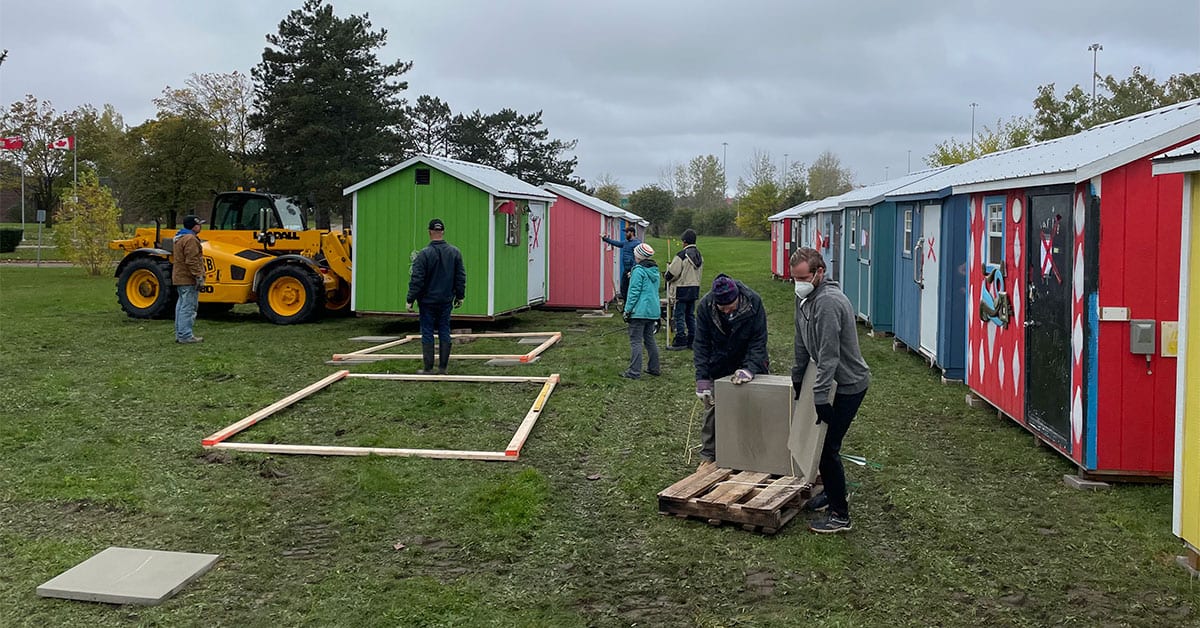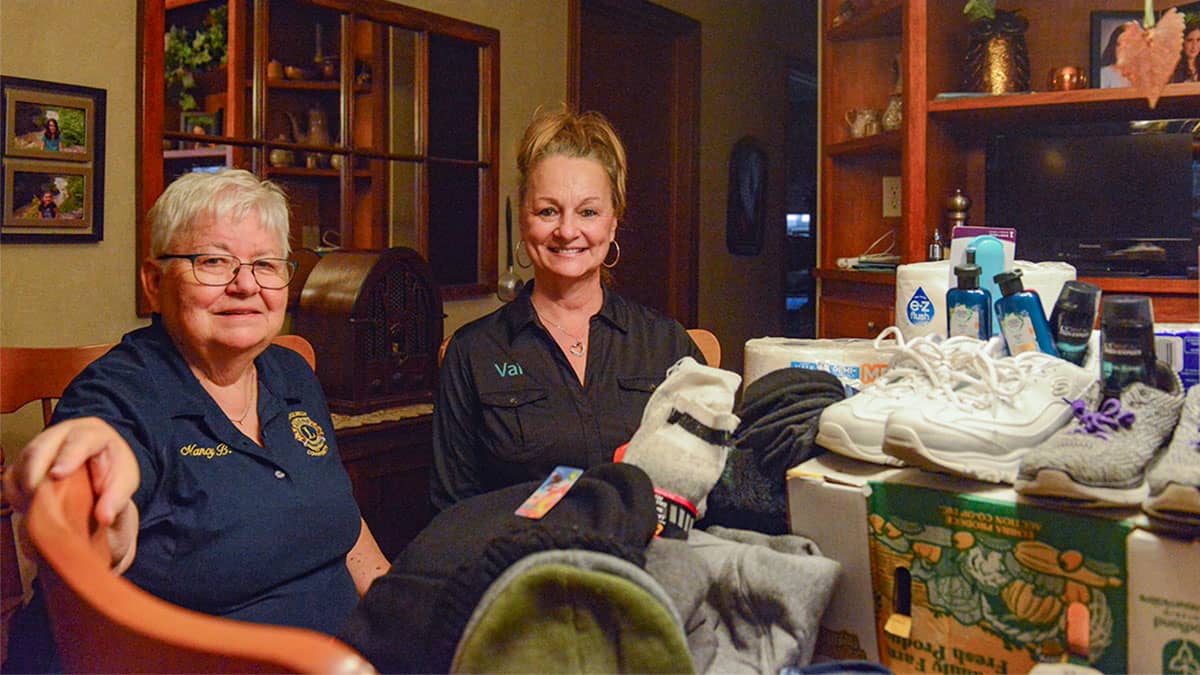For the first time in their 82-year history in the region, House of Friendship will temporarily close its shelter but still operate other services, leaving them to find temporary housing solutions at month’s end, with administrators seeking short-term housing solutions for 75 shelter residents. This is at a time when Waterloo Region is seeing record-high homelessness numbers.
A September point-in-time (PiT) survey identified some 1,085 people experiencing some degree of homelessness.
At the House of Friendship, executive director John Neufeld has seen a continuous rise in people accessing their services since 2017. Just now, however, the focus is a lease that expires on November 30 and a fundraising effort to purchase a new location as the organization prepares for the temporary shutdown.
“March 19, 2020, as we begin to navigate COVID, we are in a small, 12-bedroom shelter in downtown Kitchener – we’ve got 51 gentlemen, they’re all jammed into a very small space. So, we’ve got to move out. We move into the Radisson Hotel, dramatically increase our numbers: we go from 50 to 80 to 100,” said Neufeld.
“Because the demand has been growing in our community I would say since 2017 we just haven’t been able to catch up. COVID hit; we got emergency funding, we started to be able to create new spaces, so we moved into a hotel, stayed there until October last year, moved to the Inn of Waterloo and served as many as 130 a night and then the fire happened. And fortunately, there was this hotel in Guelph that had been used as a shelter before which was ready to take us, so we’ve been there ever since thinking we’d only be there for a few months.”
The goal, he said, was to find a place back in Waterloo Region. They looked at a variety of locations, but nothing that worked due to zoning issues, neighbourhood concerns or the like.
“We did find a good location and are in the process of purchasing that, but that takes some time. We need to get some funding and so we weren’t able to finalize the purchase of the location in time before the lease ran out in Guelph. So that’s why there’s a temporary layoff. There is still a plan – this isn’t permanent.”
They are expecting to reopen the shelter at their new location early next year. The original 12-bedroom house on Charles Street in Kitchener is not large enough for the number of shelter occupants they currently serve.
“We know we do not have the appropriate capacity, especially pre-pandemic. It was growing and growing, but we just didn’t have capacity and every winter we’d open up overflow spaces temporarily for a few months.”
Along with a growing number of homeless people, Neufeld said he’s seen an increase in the level of health concerns among that vulnerable population. Through House of Friendship’s ShelterCare program, they’ve been able to address some of the mental and physical health concerns that contribute to why someone may have become homeless, including the likes of addictions, trauma, mental health issues and poverty.
“We’ve had a vision for years to integrate health care right into shelter, to address those underlying issues. And once we did that at the Radisson, lo and behold, six months later we did some research and we found overdoses dropped in half, our use of police and ambulance dropped significantly. People were getting housed and staying housed because we weren’t just shuffling them out of shelter into any kind of housing. They had their physical needs looked at. They had their mental health and addictions looked at, some ability to start addressing some of those things. And so that’s what we’re working towards. We don’t want to use old solutions to new problems. The problem is significantly different,” said Neufeld.
“I’ve been at House Friendship for 12 years. In my first five to six years, I don’t know if I ever recall hearing about an overdose; these days, that is happening so frequently. Our staff are essentially first responders – we’ve been in a crisis for a while, but I think it’s now bubbling to the top and this is the exact time when we need to do things differently.”
A growing homelessness problem in the region suggests such issues may be a problem beyond the House of Friendship’s operation.
The recent survey found that of the 1,085 people experiencing homelessness, 412 were living in encampments or staying in their vehicle, 335 people were experiencing hidden homelessness, 191 were in emergency shelters, 84 were in transitional housing and 63 were in institutions such as hospitals and women’s crisis services. Of respondents, 10 per cent were 25-years or younger, 56 per cent were between ages 26 to 45 and 34 per cent were 46 or older. Some 17 per cent of respondents were First Nation or indigenous.
“We all share our community’s concerns about the growing need to better support those experiencing homelessness and provide them with a permanent place to call home. While this is a complex challenge shared by many community partners and levels of government, more accurate data will help us better support those experiencing homelessness and contribute to ending chronic homelessness in Waterloo Region,” said region Chair Karen Redman in a release accompanying the PiT count.
“It’s no mystery that who we look after are the unwell and the unwanted. There’s a fear of who we serve, and there’s concerns about having them near any neighbourhood, but it can be done. We had a great relationship with a neighbourhood when we were at the Inn of Waterloo, and we met with them, addressed any concerns and got really good support from the neighbourhood,” said Neufeld about concerns residents may have about living near a homeless shelter.
“We got to keep advocating as a community for more affordable and supportive housing. It’s a really challenging time for all the shelters, not just ours.”
Neufeld noted it’s been difficult for the current shelter residents as they have had to continuously move during the pandemic, creating more uncertainty in their lives.
“This is another change. This is another instability. It’s heartbreaking for them. They’ve moved three times in 12 months. We need to stop providing temporary solutions. We need to have some permanency because they’ve already had enough trauma in their life. This is another level of instability – it’s going to be very challenging.”
House of Friendship alongside the Region of Waterloo and the emergency shelter system will look to create short-term capacity and secure spaces for current residents as the shelter closes.









